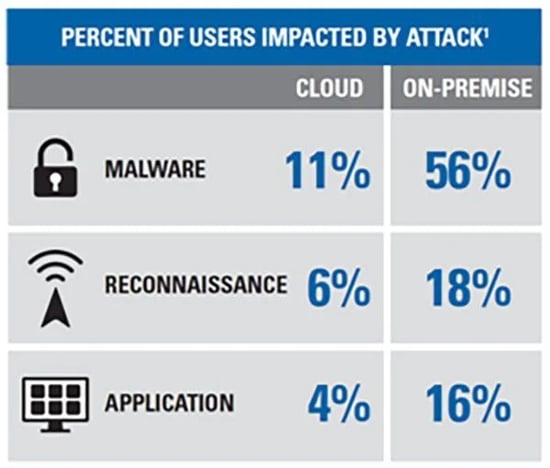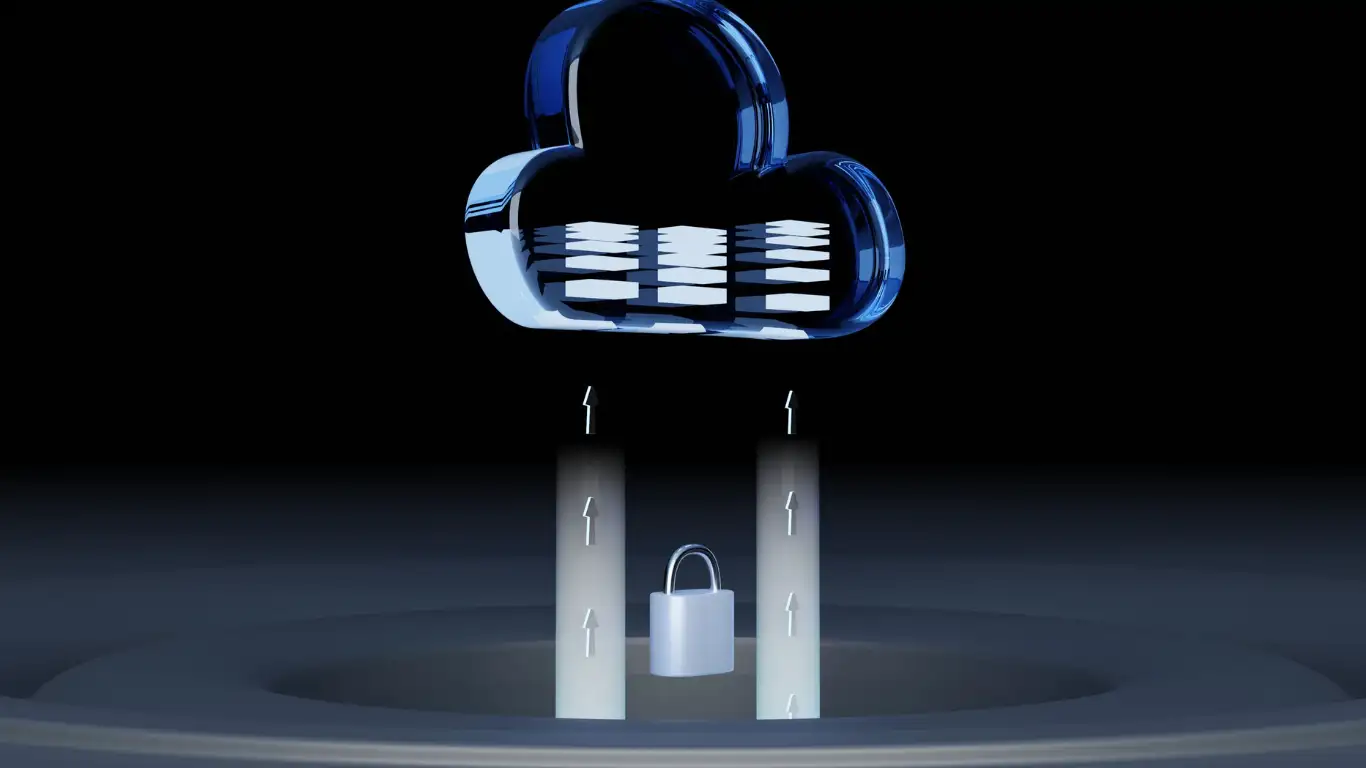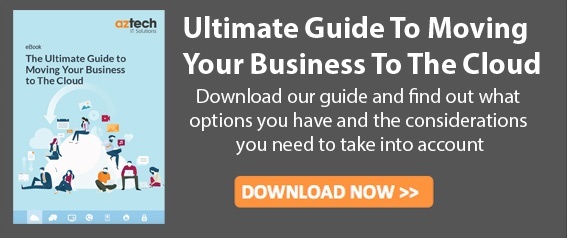Today's digital world presents exciting opportunities for businesses to expand their customer base, increase efficiency, and harness the power of cloud computing.
But it also brings a new set of challenges in the form of cyber security threats.
Many businesses are faced with the dilemma - should they go on premise or shift to cloud-based security solutions?
In this blog post, we will compare on premise versus cloud security options and explain why many businesses are now opting for a hybrid approach that combines both approaches.
Editor's Note: This blog post is last updated in Aug 2024.
With the rise of cloud computing solutions, businesses have to decide between cloud security and on-premise security to protect their data.
Let us look at the key differences between cloud vs on premise security and help you choose the best option for your business.
What is Cloud Security?
Cloud security refers to the set of guidelines, practices, and technologies designed to safeguard cloud computing infrastructures, applications, and data from unauthorised access, theft, and other cyber threats.
The security measures used for traditional computing systems are generally ineffective for cloud security.
What is On-Premise Security?
On-premise security is a part of cybersecurity strategy which involves securing the physical and digital infrastructure of a company or facility from external and internal threats.
This can include everything from securing the building entrances and exits to implementing robust firewalls and antivirus software.
With cyber-attacks and data breaches becoming increasingly common, on-premise security is no longer a luxury but a necessity for any business wishing to keep its sensitive data and assets safe.
Now, let us delve into the core aspect of comparing cloud vs on premise security.
Cloud Security vs. On-Premise Security
While cloud security and on-premise security share the common goal of protecting sensitive information, they differ in one crucial aspect.
Cloud security focuses on safeguarding data stored in the cloud, while on-premise security focuses on protecting data stored within a business's own infrastructure.
The cloud offers distinct advantages, including the ability to rapidly scale storage and processing power.
However, it also presents unique challenges, such as data privacy and susceptibility to cyber-attacks.
On the other hand, on-premise security allows businesses to maintain full control over their data, mitigating risks associated with third-party service providers.
Both cloud vs. on-premise security have their pros and cons, and businesses must carefully evaluate their options to choose the most suitable solution for their specific security requirements.
 Source: Motorola Solutions
Source: Motorola SolutionsCloud vs On-Premise Security Comparison
Here are the 5 major difference between cloud security vs on premise solutions:
| Parameters | Cloud Security | On-premise Security |
| Cost | Eliminates the necessity for businesses to make costly investments in hardware, software, and IT personnel | Responsible for the expenses associated with the installation, maintenance, and upgrades of hardware and software |
| Scalability | Can easily scale up or down their security requirements according to their changing needs | Cannot easily adjust their security needs according to their evolving requirements |
| Reliability | Invest heavily in robust security infrastructure and backup systems | Susceptible to hardware failures, power outages, and other system failures |
| Control | Limits control over their security infrastructure | Complete control over their hardware and software |
| Deployment Time | With the advantage of pre-configured security settings, deployment can be achieved much more quickly | Involves the installation and configuration of security infrastructure, which can be a time-consuming process |
1. Cost
The cost of cloud security vs on-premise security differs significantly.
Businesses that choose on-premise security have to bear the cost of hardware and software installation, maintenance, and upgrades.
On the other hand, cloud security eliminates the need for businesses to invest in expensive hardware, software, and IT personnel.
Therefore, businesses can save a significant amount of money by opting for cloud security.
2. Scalability
Cloud security provides businesses with the advantage of greater scalability compared to on-premise security.
By leveraging the cloud, businesses can effortlessly adjust their security requirements to meet their evolving needs.
This flexibility is especially advantageous for businesses with fluctuating IT security demands, such as those that experience seasonal variations.
3. Reliability
There's a common misconception that cloud security isn't as reliable as on-premise security.
However, this isn't entirely true.
Cloud service providers invest heavily in robust security infrastructure and backup systems to ensure that their clients' data is secure and always available.
On-premise security, on the other hand, is susceptible to hardware failures, power outages, and other system failures that can potentially compromise data security and availability.
4. Control
On-premise security provides businesses with greater control over their security infrastructure than cloud security.
With on-premise security, businesses have complete control over their hardware and software and can customise their security infrastructure according to their specific needs.
However, cloud security limits businesses control over their security infrastructure, which can be a concern for businesses that require more control over their technology.
5. Deployment Time
Cloud security can be deployed much faster than on-premise security. This is because cloud service providers have pre-built security configurations that they can easily implement for their clients.
On-premise security, on the other hand, requires businesses to install and configure their security infrastructure, which can take a significant amount of time.
Cloud vs On Premise Security FAQs
Is cloud more secure than on-premise?
When it comes to choosing between cloud and on-premise solutions, one key factor that often comes up is security.
While some may believe that having data on-premise is inherently safer, that isn't always the case.
In fact, many cloud providers invest heavily in security measures to protect their customers' data, including measures such as encryption and multi-factor authentication.
Additionally, cloud providers may have better resources for monitoring and quickly responding to potential security threats.
What is the difference between cloud-based and on-premises vulnerabilities in cyber security?
With more and more companies adopting cloud-based solutions, it is essential to distinguish between cloud-based and on-premises vulnerabilities in cyber security.
Cloud-based services are run off remote servers, which require a robust security layer to mitigate any breaches.
On the other hand, on-premises software is hosted on the company's in-house servers, providing greater control over security measures.
Is SaaS more secure than on-premise?
On-premise security allows companies more control over their data and infrastructure whilst SaaS security has the potential to be compromised due to the reliance on third-party providers.
On the other hand, SaaS providers often have highly specialised teams dedicated to security, leaving companies to focus on their core business activities.
Is cloud computing more secure?
On-premise security has been known for its robustness and centralised control, but cloud security has its own set of benefits.
With cloud computing, businesses can enjoy a higher level of flexibility and scalability, allowing them to adapt quickly to changes in their data storage requirements.
Ultimately, security in the cloud comes down to the provider's ability to implement effective security measures and minimises the risks of data breaches.
Thus, it remains up to businesses to choose which solution they feel is better for their data security needs.
Conclusion
In conclusion, both cloud security vs on-premise security have their unique benefits and limitations.
Ultimately, the choice between the two will depend on your specific business requirements.
If you're looking for a cost-effective, scalable, and reliable security solution that can be deployed quickly, cloud security is a great option.
On the other hand, if you desire a higher level of control over your security infrastructure, on-premise security might be the ideal choice for you.
Keep in mind that regardless of which option you select, it is crucial to collaborate with a reliable security provider who can assist you in attaining your data security objectives.

-1.png?width=552&height=678&name=text-image%20module%20desktop%20(4)-1.png)


.png?width=2000&name=Case%20study%20(21).png)


-2.png?width=422&height=591&name=text%20image%20tablet%20(31)-2.png)








